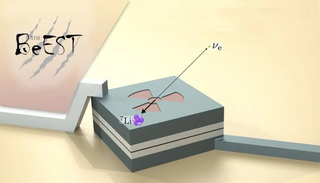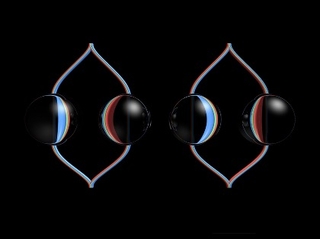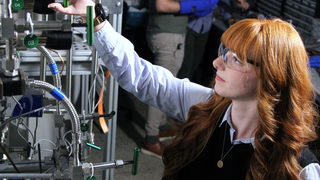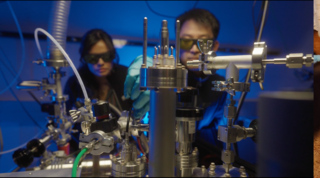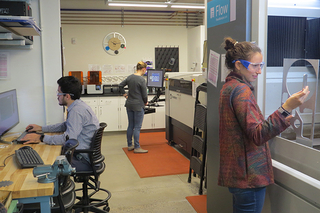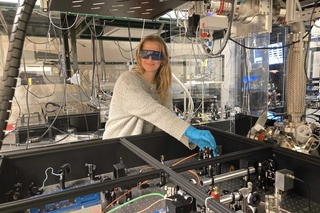Biographical Sketch:
David Moore develops new technologies and techniques aimed at answering some of the major outstanding questions in nuclear and particle physics about neutrinos, dark matter, the preference for matter over antimatter in the Universe, and the nature of gravitational interactions among quantum systems
He received his undergraduate degree from Yale University and his Ph.D. from Caltech, where he worked on searching for interactions from dark matter particles using cryogenic detectors. Following his PhD, he was a postdoctoral fellow at Stanford University before returning to Yale to join the faculty in 2016.
Research:
Professor Moore’s research group is developing new technologies to search for physics beyond the Standard Model of particle physics. These experiments use precision techniques to search for tiny effects in the lab, including new fundamental phenomena (e.g., those related to neutrinos, dark matter, or the microscopic nature of gravity) that may occur at much higher energy or much weaker couplings than could be directly detected at particle accelerators or other direct searches. We are currently involved in searching for neutrinoless double beta decay with the nEXO experiment, which aims to identify this lepton-number-violating decay if it occurs with a half-life up to 1028 years (nearly 1018 times the age of the universe). We are also developing force sensors and accelerometers capable of searching for new forces (as small as 10-21 N) using optically trapped, nanogram scale masses. These optomechanical sensors have applications to searches for dark matter, tests of Newton’s and Coulomb’s laws at microscopic distances, and are approaching quantum measurement regimes for nanogram mass mechanical objects. Professor Moore’s research group is housed at Wright Laboratory, and Prof. Moore is a member of the Yale Quantum Institute
Education:
Ph.D., Physics, California Institute of Technology, 2012
Honors & Awards:
Moore received the Alfred P. Sloan Research Fellowship in Physics, the National Science Foundation (NSF) Early Career Award, the Lee Grodzins Postdoctoral Award at MIT, and the Mitsuyoshi Tanaka Dissertation Award in Experimental Particle Physics from the American Physical Society (APS).
Selected publications:
- Google Scholar
- INSPIRE publications
- Publon

